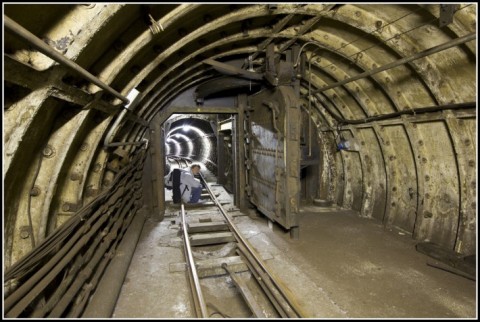The Royal Mail system had a dedicated subway line of their own. It was eventually abandoned, but not destroyed, as some trespassers were able to discover:

Construction of the tunnels began on February 1915, from a series of shaft located along the route. The tunnels were primarily dug in clay using the Greathead shield system, although the connecting tunnels in and around the stations were mined by hand. Construction was suspended due to the outbreak of WW1, but was allowed to continue until completion for safety reasons. Further setbacks halted the construction of the stations during 1917 due to the shortage of labour and materials.
It wasn’t until June 1924, that workers began laying the track using 1000 tons of running rail and 160 tons of conductor rail. The remaining electrical installation took place in 1925 with the section between Paddington and the West Central District Office being ready for training. The line was eventually finished in 1927 with the first letter through the system running on February 1928.
In 1954, due to problems with access at the Western District Office and the Western Central District Office plans were drawn up to construct a new Western District Office at Rathbone Place. This meant the construction of a diversion to the line to the station which was completed in 1958, although the station was not opened until the 3rd August, 1965.
H/T to Cory Doctorow for the link.



